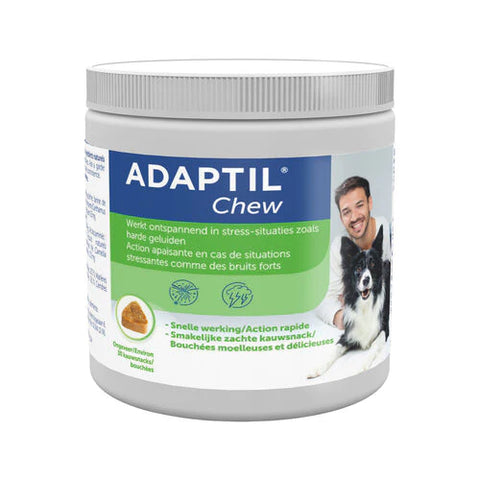A Guide to Socialising Your Pet, Creating Connections and Confidence
Pets, much like humans, benefit greatly from social interaction. Whether you have a playful pup, a curious kitten, or any other furry, feathered, or scaly companion, socialisation plays a vital role in their development and well-being. Proper socialisation can lead to a happier, more well-adjusted pet that feels comfortable in various environments and around different people and animals. Keep reading to find out the importance of socialising your pets and some tips on how best to do this.
Understanding the Importance of Socialisation
Our pets hold a cherished place in our lives, offering companionship, loyalty, and endless moments of joy. As pet owners, it's essential to understand the profound impact that socialisation has on the well-being and overall behaviour of our pets. Socialisation isn't just about exposing your pet to new experiences; it's a fundamental aspect of ensuring they lead happy, balanced lives.
Socialisation is the process of introducing your pet to different experiences, environments, people, and animals to help them adapt and become comfortable in diverse situations. It's crucial for puppies, kittens, and young animals, but even adult pets can benefit from socialisation.
Building Confidence and Resilience
Socialisation plays a pivotal role in shaping a pet's confidence and resilience. By gradually introducing them to various stimuli, such as different environments, people, animals, sounds, and experiences, you equip your pet with the tools to navigate the world with assurance. This exposure helps them feel secure and less anxious in unfamiliar situations.
Preventing Behavioural Issues
Unsocialised pets are more likely to develop behavioural issues, including fear, aggression, and excessive shyness. Through socialisation, pets learn appropriate behaviours and how to interact positively with humans and other animals. This exposure at an early age significantly reduces the likelihood of behavioural problems later in life.
Enhancing Communication and Trust
Socialised pets tend to have better communication skills and a deeper bond with their owners. As you expose them to various situations, your pet learns to understand your cues and commands better. This mutual understanding fosters trust and strengthens your relationship, creating a harmonious connection between you and your furry friend.
Encouraging Adaptability and Safety
Pets that are well-socialised are more adaptable to change, making it easier for them to handle new environments, people, and routines. This adaptability is particularly crucial during travel or when facing unexpected situations, ensuring their safety and reducing stress for both pet and owner.
Benefits of Socialisation:
- Reduced Anxiety: Exposure to different stimuli early on helps pets become less anxious and fearful in new situations.
- Improved Behaviour: Well-socialised pets tend to exhibit better behaviour and manners around people and other animals.
- Enhanced Confidence: Socialisation helps build confidence in pets, making them more resilient and adaptable.
Importance of Minimising Anxiety:
It is crucial for pets to avoid anxiety because severe anxiety can have detrimental effects on their mental and physical health. Here's why it's important to minimise anxiety in pets:
-
Health implications: Anxiety can manifest physically in pets, leading to issues such as gastrointestinal problems, skin conditions, suppressed immune function, and even heart problems. Chronic stress and anxiety weaken the body's ability to fight off illnesses, making pets more susceptible to various health issues.
-
Behavioural problems: Anxiety often correlates with undesirable behaviours in pets, including aggression, destructive chewing, excessive barking, urination or defecation in inappropriate places, withdrawal, and obsessive-compulsive behaviours. Addressing the root cause of anxiety can help mitigate these behavioural problems.
-
Decreased quality of life: Anxious pets may experience a diminished quality of life. They may be less likely to engage in activities they once enjoyed, leading to a lack of exercise, socialisation, and mental stimulation, which are crucial for their overall well-being.
-
Impact on the human-animal bond: Pets that are constantly anxious might have difficulty bonding with their owners or caretakers. This can affect the relationship between the pet and its human family members, leading to stress and frustration for both parties.
-
Long-term effects: Prolonged anxiety can have lasting effects on a pet's mental health, potentially leading to chronic stress disorders that are more challenging to address and resolve. Early intervention and management of anxiety are essential to prevent long-term negative consequences.
-
Reduced lifespan: Chronic stress and anxiety can have a negative impact on a pet's longevity. Long-term stress hormones, such as cortisol, can weaken the immune system and contribute to a shorter lifespan.
Addressing anxiety in pets through proper socialisation, providing a stimulating environment, regular exercise, positive reinforcement, and, in severe cases, seeking professional help from veterinarians or animal behaviourists can significantly improve their well-being and prevent the adverse effects associated with anxiety.
Tips for Socialising Your Pet
1. Early Start is Key
Start socialising your pet as early as possible. Puppies and kittens are like sponges during their formative weeks and months, making it easier for them to adapt to new experiences.
Puppies and kittens learn exceptionally well due to a combination of biological, developmental, and behavioural factors unique to their early stages of life. Both puppies and kittens have highly adaptable brains with a high level of neuroplasticity. This means their brains can form new connections and adapt more readily to new information and experiences, allowing for rapid learning and retention of information.
During their early development, puppies and kittens go through a critical period where they are most receptive to learning from their environment. This period is crucial for socialisation, exposure to various stimuli, and learning essential life skills. They are highly adaptable and can quickly learn from their experiences during this time. Young animals are naturally curious and eager to explore their surroundings. Their innate curiosity drives them to investigate and interact with objects, people, and other animals, facilitating learning through hands-on experiences.
These factors collectively contribute to the rapid learning abilities of puppies and kittens during their early stages of life. It is therefore important to take advantage of this critical period for socialisation, training, and positive reinforcement to help shape their behaviour and learning capabilities as they grow into well-adjusted adult pets.
2. Gradual Exposure
Introduce your pet gradually to new experiences. Start in a controlled environment and slowly expose them to different sights, sounds, people, and animals.
Gradually exposing your pet to new experiences is beneficial for several reasons. Introducing new experiences slowly helps reduce stress and anxiety in pets. Sudden exposure to unfamiliar situations or environments can be overwhelming and frightening for animals. Gradual exposure allows them to acclimate at their own pace, reducing fear and stress reactions. Gradual exposure gives pets the opportunity to adjust slowly, allowing them to build confidence in handling new situations. As they become more familiar with and comfortable in a new environment, their confidence grows, making them less likely to react fearfully or anxiously.
Rushing a pet into unfamiliar situations can lead to behavioural problems such as aggression, excessive barking, or withdrawal. Gradual exposure helps prevent these issues by allowing the pet to adapt and learn how to navigate new experiences without feeling overwhelmed. Slow and positive introductions to new experiences can help pets form positive associations. Pairing new environments or situations with rewards, treats, playtime, or praise can create positive associations, making future encounters more enjoyable for the pet.
Remember, each pet is unique, and the pace of introduction to new experiences should be tailored to their individual temperament, personality, and comfort level. Patience, positive reinforcement, and observing your pet's reactions are crucial when gradually exposing them to new environments or situations.
3. Positive Reinforcement
Use positive reinforcement techniques such as treats, praise, and toys to associate new experiences with positive feelings. Reward your pet for calm and confident behaviour in new situations.
Munch & Crunch Tripe Chews £4.09 and Pet Munchies Duck Strips £11.79
Rewarding your pet creates positive associations by linking a specific behaviour or action with a pleasurable or desirable outcome. When a pet receives a reward after performing a desired behaviour, it reinforces that behaviour and encourages them to repeat it in the future. Here's how it works:
-
Positive reinforcement: When a pet receives a reward (such as treats, praise, toys, or affection) immediately after demonstrating a desired behaviour, they associate that behaviour with a positive outcome. For example, giving a treat to a dog for sitting on command reinforces the action of sitting.
-
Activation of pleasure centres: Rewards trigger the release of neurotransmitters like dopamine in the brain, which are associated with pleasure and reward. This creates a positive emotional response, making the pet feel good when they receive the reward.
-
Associative learning: Pets learn through associative learning, where they link actions with consequences. When a reward follows a specific behaviour consistently, the pet learns to associate that behaviour with a positive outcome, reinforcing the behaviour.
-
Motivation to repeat behaviour: Pets are motivated to repeat behaviours that result in positive outcomes. When they realise that performing a particular action leads to a reward, they are more likely to repeat that behaviour in the future to achieve the same positive outcome.
-
Strengthens the human-animal bond: Reward-based training creates a positive interaction between the pet and the owner or trainer. This positive interaction fosters trust, strengthens the bond between the pet and the caregiver, and encourages further cooperation and learning.
It's important to ensure that the reward is given immediately after the desired behaviour and that the reward is meaningful to the pet. Consistency and timing are key to effective positive reinforcement. Additionally, using a variety of rewards and keeping training sessions fun and engaging can help maintain the pet's motivation and interest in learning.
4. Exposure to Various Environments
Expose your pet to different environments—parks, neighbourhoods, busy streets, quiet areas—to help them get accustomed to diverse settings. Pets that are familiar with different environments tend to be less anxious and fearful in unfamiliar situations. Early and positive exposure to various environments helps desensitise them to potentially frightening or overwhelming stimuli, reducing fear and anxiety responses.
Pets that have been exposed to diverse environments tend to be more adaptable. They learn to adjust and cope with changes, making them better equipped to handle new situations, such as moving to a new home, traveling, or encountering novel environments. These pets also tend to be more confident. Positive experiences in different settings contribute to their self-assurance, making them more comfortable and secure when encountering new situations.
5. Interactions with People
Encourage interactions with different people of varying ages and genders. This helps your pet become comfortable around different individuals. Positive interactions with people, especially their owners or primary caregivers, help build trust between pets and humans. Spending quality time together, providing care, and showing affection gradually establishes a bond based on trust and mutual understanding. Interactions with different people expose pets to a variety of social experiences. Positive encounters with diverse individuals, including family members, friends, and strangers (when introduced in a safe and controlled manner), contribute to their comfort around people.
Pets observe and learn from human behaviour, including body language, facial expressions, and vocal cues. Positive and consistent interactions help pets understand human communication, making them more comfortable and responsive to human cues.
6. Animal Encounters
Arrange safe and controlled interactions with other animals, but ensure they're vaccinated and well-behaved. Start with animals known to be friendly and calm. You could even introduce some toys to encourage your pet and the other animals to play together.
KONG Crackles Flutterz £8.19 and Chuckit Ultra Squeaker Dog Toy 2 Pack £9.99
Encountering different animals is important for pets due to several reasons:
-
Socialisation: Interacting with various animals, such as other dogs, cats, or different species, helps pets develop social skills. It teaches them how to communicate, play, and interact appropriately with different kinds of animals, which is crucial for their social development.
-
Understanding social cues: Exposure to different animals allows pets to learn and understand various social cues and body language displayed by other animals. This helps them navigate social situations better and can prevent misunderstandings or conflicts when interacting with unfamiliar animals.
-
Reduced fear and aggression: Early exposure to a variety of animals can help prevent fear or aggression towards other species. Pets that are familiar with different animals from a young age are often more comfortable and less likely to display fearful or aggressive behaviours when encountering new species later in life.
-
Enrichment and mental stimulation: Interacting with different animals provides mental stimulation and enrichment for pets. It offers them new experiences, sensory stimuli, and opportunities for play and exploration, which are essential for their cognitive development and overall well-being.
-
Adaptability: Pets that are exposed to various animals tend to be more adaptable. They learn to adjust to different social dynamics, behaviours, and personalities exhibited by other animals, making them more adaptable and resilient in diverse environments.
-
Preventing isolation and loneliness: For social animals like dogs and some cat breeds, interacting with other animals can prevent feelings of isolation or loneliness, especially in single-pet households. Positive interactions with other animals can fulfil their social needs and provide companionship.
-
Facilitating positive relationships: Encounters with different animals can help pets form positive relationships with other species, fostering friendships and companionship that can be beneficial for their emotional well-being.
However, it's crucial to introduce pets to other animals gradually and in controlled environments to ensure safety and positive experiences. Not all pets may react positively to every animal encounter, so supervision and guidance during introductions are important to prevent stress or conflicts. Gradual exposure, positive reinforcement, and observing the pets' body language and behaviour during interactions are key to successful and beneficial encounters with different animals.
7. Training and Social Classes
Enrol your pet in obedience training or socialisation classes. These environments provide structured settings for interaction and learning. Social classes are conducted in a controlled environment with professional trainers or instructors overseeing the sessions. This ensures that pets receive guidance, positive reinforcement, and appropriate correction when needed.
Social classes provide structured training sessions where pets can learn basic obedience commands, socialisation skills, and good manners in a controlled environment. This training helps pets become well-behaved and responsive to commands, making them more manageable in various social settings. Pets attending these social classes get the chance to interact with other animals in a supervised and controlled environment. These interactions help in developing social skills, learning appropriate behaviours, and getting accustomed to different breeds and personalities.
8. Patience and Consistency
Be patient and consistent throughout the socialisation process. Every pet is different, and some may take longer to adjust than others.
The time it takes for pets to become social can vary widely depending on several factors, including the individual animal's temperament, past experiences, species, breed, age, and the socialisation process they undergo. Each pet has its own personality and temperament. Some animals are naturally more outgoing and sociable, while others may be more shy or reserved initially.
Pets that have had negative experiences or lack social exposure may take longer to become social. Traumatic experiences or a lack of socialisation early in life can influence a pet's comfort level around new people or animals. Continual exposure to positive social experiences, along with consistent training and reinforcement, can help pets become more social over time. This includes regular interaction with other animals, supervised playdates, and exposure to various environments.
It's essential to approach socialisation patiently and gradually, respecting the pet's pace and comfort level. Rushing the process or forcing interactions can lead to stress or anxiety, hindering progress. With time, proper training, positive reinforcement, and patience, most pets can become more social and comfortable around other animals and people. However, some animals may always have a preference for a certain level of social interaction, which is normal and should be respected.
9. Monitoring Stress Levels
Socialising can be stressful for pets due to several reasons. New environments, unfamiliar people, animals, or situations can be intimidating for pets. They might feel overwhelmed or uncertain when encountering something they've never experienced before, leading to stress or anxiety. Pets that have had negative encounters or traumatic experiences in the past or that haven't been properly socialised during their critical developmental period may develop fear or anxiety associated with social situations. Such experiences can leave a lasting impact, making future social interactions stressful and challenging for them.
Observe your pet's body language for signs of stress or discomfort. If your pet seems overwhelmed, take a step back and try again later. If needed provide your pet with supplements to help reduce stress and make them feel more comfortable.
YuMOVE Calming Care for Adult Cats £15.69 and Adaptil Dog Calming Chews £31.5910. Regular Exposure
Continue socialising your pet regularly, even after the initial socialisation period. Regular exposure helps reinforce positive behaviours and prevents regression. Socialisation provides mental stimulation for pets. Meeting new people, exploring different places, and interacting with other animals offer mental enrichment, preventing boredom and promoting cognitive development. Furthermore, pets that are regularly exposed to socialisation tend to be more adaptable to changes in their environment. They become accustomed to various situations, making them more resilient and better equipped to handle new experiences or transitions.
Socialising your pet is a gradual and ongoing process that requires patience, dedication, and a gentle approach. Remember that each pet is unique, so tailor your socialisation methods to suit your pet's personality and needs. By investing time and effort into socialising your pet, you're nurturing their mental and emotional well-being, fostering positive behaviour, and laying the groundwork for a fulfilling and enriched life together.
Socialising Your Pet with Direct4Pet
By introducing your pet to various experiences and providing positive reinforcement, you can help them become confident, well-behaved, and adaptable companions. Socialisation not only enhances their quality of life but also deepens the bond between you and your furry friend. Start today, and watch your pet bloom into a happy, well-socialised companion! Browse through our full range of treats, toys and more to help support your pet through this process.






